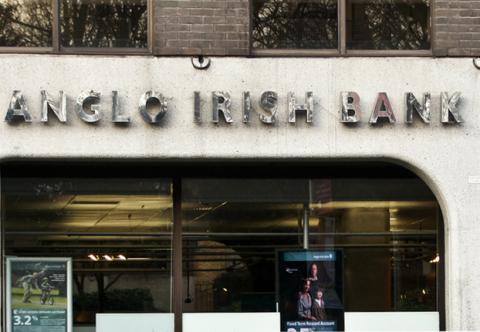Quinn must be held to account over financial dealings

Members of the Quinn family deployed every possible ruse to stick us, the Irish public, with the debt they recklessly amassed. By Vincent Browne.
Sean Quinn concocted an elaborate miasma of companies, at least in part, to transfer ownership of hugely valuable property assets into the names of his children. Presumably this was done for tax reasons, at least in the initial stages.
Quinn Investments Sweden (QIS), a Swedish company, was the vehicle through which these property assets were owned. This company, in turn, created myriad subsidiaries, including a number of Cypriot companies, which in turn held shares in companies in Russia, Ukraine and India.
The vast fortunes of the Quinn family went disastrously wrong in 2008, primarily over Sean Quinn's acquisition of contracts for difference in Anglo Irish Bank (surrogate shares whereby the purchaser agrees to purchase the 'real' shares in a company at a particular price, enabling the purchaser to make a healthy profit for a minimal outlay if the share price increases, but exposes him to massive losses if the share price falls).
When the shares in Anglo Irish Bank plunged in the spring of 2008, Quinn was left with an exposure of €2.8 billion – which led to the share-fixing arrangement.
Anglo Irish Bank lent Quinn €2.3 billion to fund his exposure, and raised €500 million through a group known as the Maple Ten. The Quinn family owed a further €500 million to Anglo, and the total €2.8 billion loan was secured by share pledges against the companies in the international property group.
On 14 April 2011, Anglo demanded payment of the outstanding €2.8 billion and, from then onwards, members of the Quinn family engaged in a concerted effort to put the assets - which Anglo had as security for the loans - out of the bank's reach.
Members of the Quinn family acknowledged they had done just that, but claimed they ceased doing so when a High Court order was issued on 27 June 2011, that prohibited them from doing so.
One of the ruses related to a Ukrainian woman, Yanez Puga, who was general director of a Ukrainian company owed by the Quinn family. It emerged that the company had supposedly entered into a labour contract with Puga, which provided for a termination payment to her of half a million US dollars if her contract were terminated. She was later fired and, thereby, became eligible for the half-million-dollar payment.
The court found that this labour contract had been "fabricated or falsified" by inserting paragraphs providing for the termination payment into her employment contract, and that the point was to facilitate the transfer of US$500,000 out of the company to Puga.
Similar efforts were made in relation to a Russian company, Finansstroy, valued at US$143 million, generating income of US$22.5 million annually.
According to last Tuesday's judgment of Elizabeth Dunne in the High Court, in the case brought by Anglo over the breach of the court orders by members of the Quinn family: "The evidence of Peter Quinn and Sean Quinn snr is that, prior to the appointment of a share receiver by Anglo in April 2011, Peter Quinn had been considering the implementation of a plan, on the basis of legal and financial advice he had obtained, which involved the systematic stripping of assets from [Quinn-controlled] companies, with a view to placing them beyond the reach of [Anglo]."
Shares/assets worth hundreds of millions of dollars were transferred via a variety of ruses, one of which allegedly involved a "gentleman's agreement" with a Russian man.
It was put to Peter Quinn during the hearing of the contempt case on the breach of court orders that this Russian might have been unaware of the gentleman's agreement. His reply was: "That's a possibility, yes."
Apart from the flagrant breach of the court order and the disappointment that jail sentences were not imposed immediately, it seems to me there are two serious issues involved here.
The first is the admitted attempt by members of the Quinn family to deprive Anglo Irish Bank of the value of the securities it had obtained to back the €2.8 billion in loans. The Quinn family in other proceedings is seeking a declaration that the €2.3 billion loan from Anglo in connection with the Anglo share-support scheme was illegal, and therefore cannot now be fastened on them.
The alleged Anglo share-support scheme arose solely from the actions of Sean Quinn snr in amassing a stake in Anglo, which he could not support financially.
So the contention now is that, because of the legally suspect manner in which Anglo Irish Bank sought to unravel the crisis caused by Sean Quinn, the Quinn family should escape entirely from the consequences of the undertakings they gave.
This adds injury to injury, with a fair dollop of insult thrown in.
But aside from the loan of €2.3 billion, there is a further half a billion owing, and now we find that members of the Quinn family deployed every possible ruse to stick us, the Irish public, with the debt they recklessly amassed, in order to fund their continuing lavish lifestyle to the tune of hundreds of millions of euro.
I feel this must rank as one of the most egregious acts in the recent history of the Irish state.
If people are to be prosecuted for trivial thefts or social welfare fraud, involving at most a few thousand euro, then the justice system has lost whatever credibility it has if it fails to pursue to the end the members of the Quinn family who engaged in these activities.
But oh, I forgot. The justice system is for poor people. {jathumbnailoff}
Image top: infomatique.
